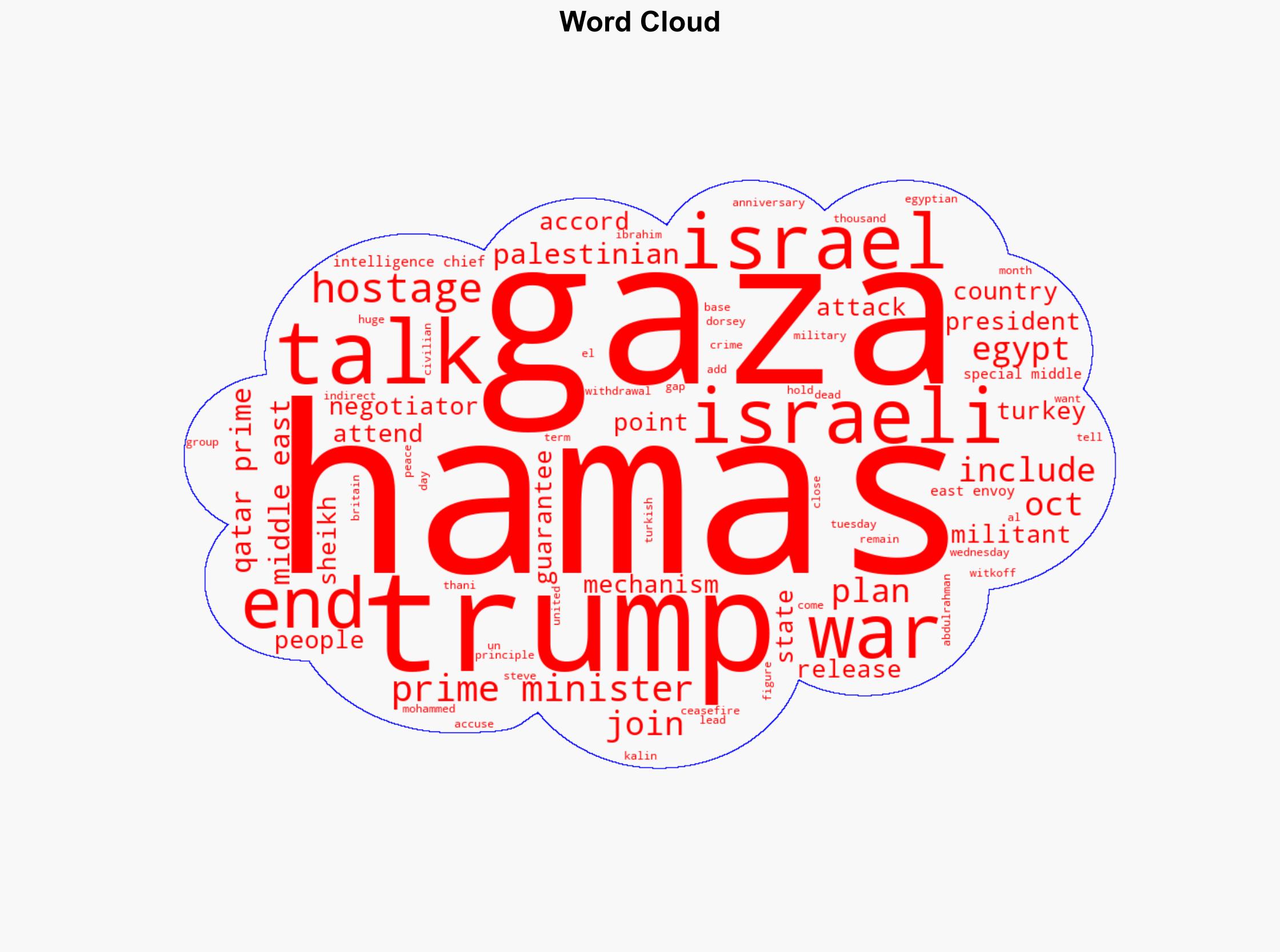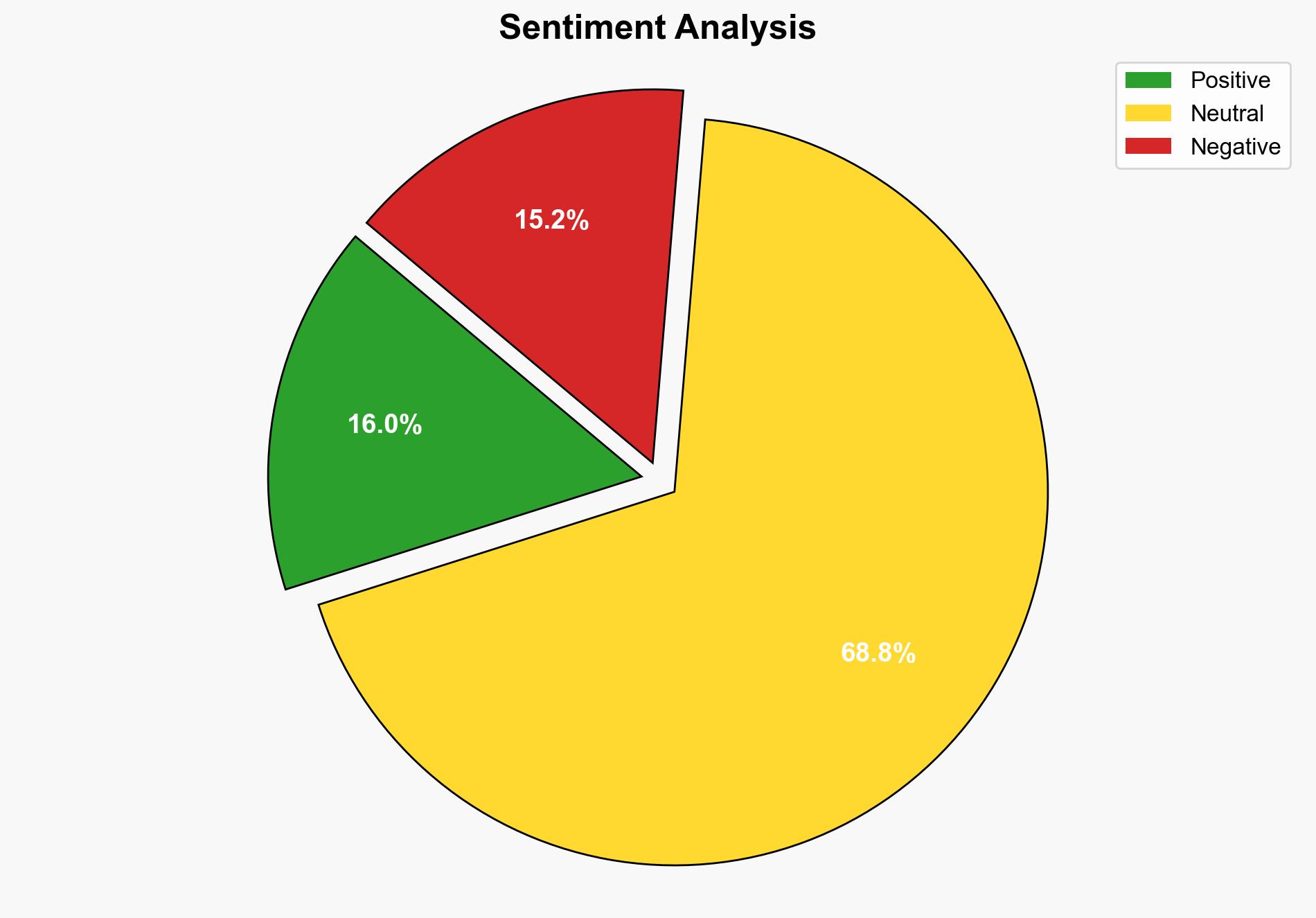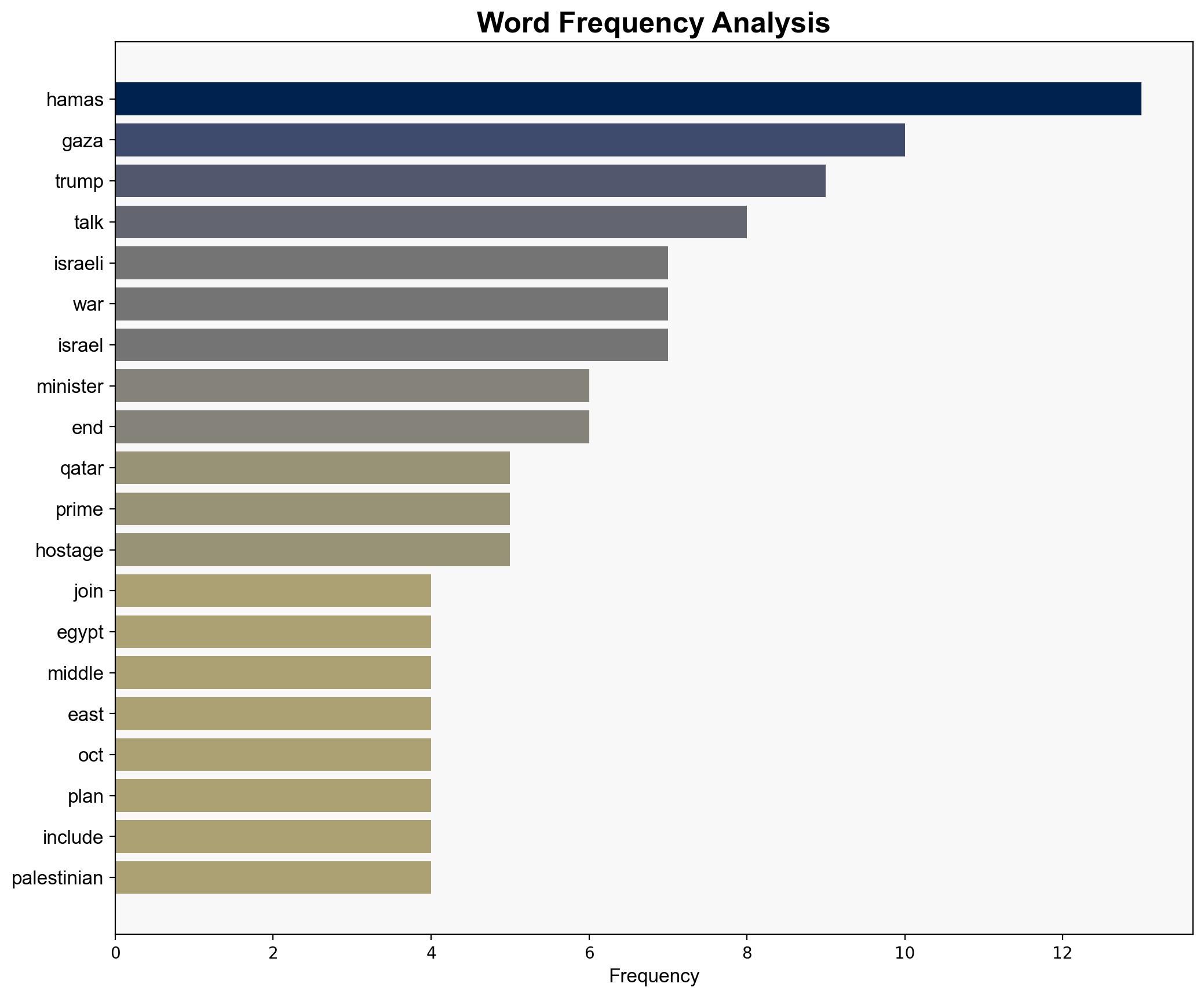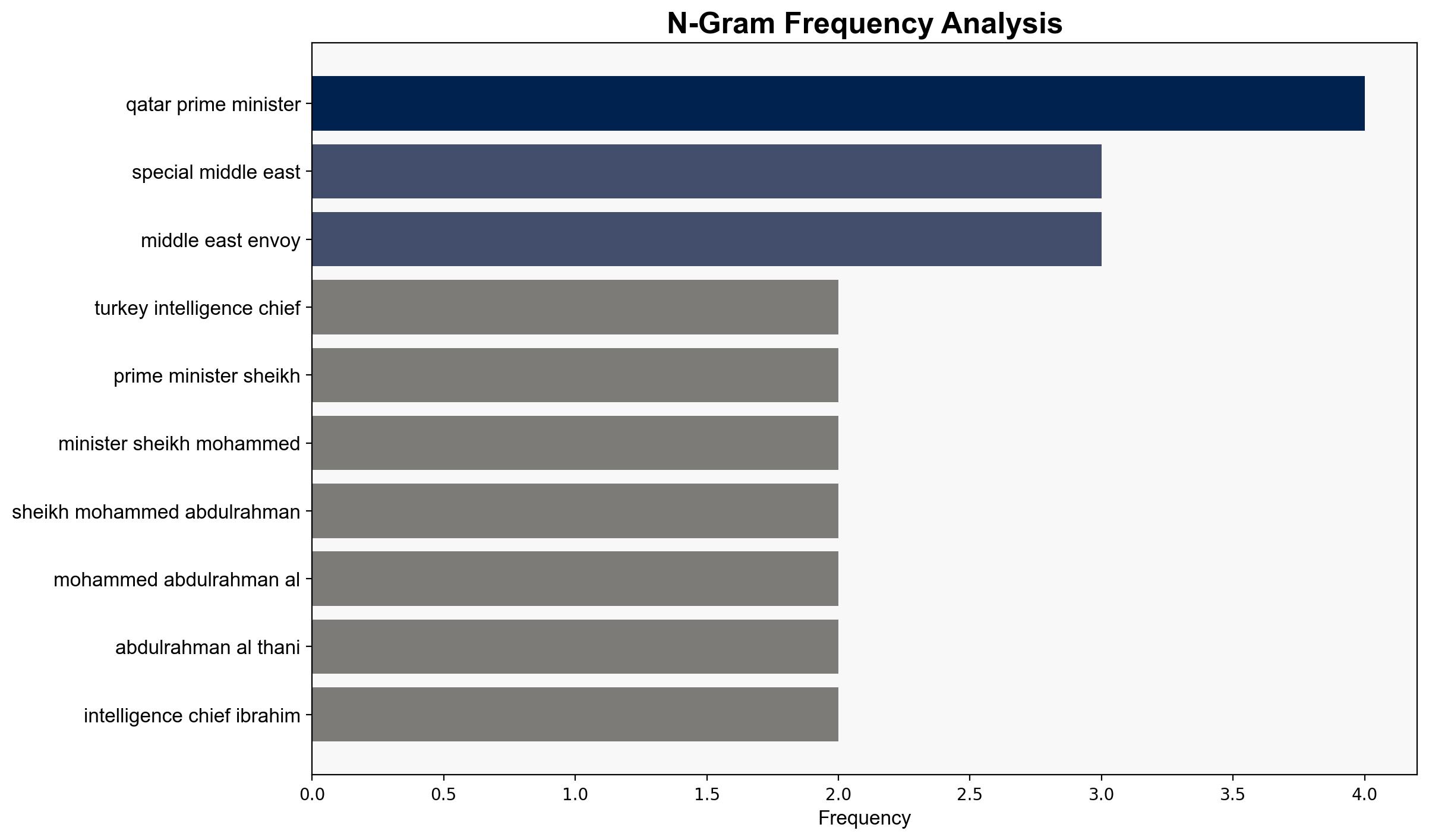Qatar Turkey To Join Third Day Of Gaza Peace Talks In Egypt – International Business Times
Published on: 2025-10-08
Intelligence Report: Qatar Turkey To Join Third Day Of Gaza Peace Talks In Egypt – International Business Times
1. BLUF (Bottom Line Up Front)
The most supported hypothesis is that the involvement of Qatar and Turkey in the Gaza peace talks is primarily aimed at facilitating a ceasefire and addressing humanitarian concerns, with a moderate confidence level. The strategic recommendation is to closely monitor the talks for any shifts in negotiation dynamics and prepare contingency plans for potential escalations or breakthroughs.
2. Competing Hypotheses
1. **Hypothesis A**: Qatar and Turkey’s participation in the peace talks is primarily driven by a genuine interest in mediating a ceasefire and addressing humanitarian issues in Gaza. This hypothesis is supported by their historical involvement in regional diplomacy and humanitarian efforts.
2. **Hypothesis B**: Qatar and Turkey are using the peace talks as a platform to expand their influence in the Middle East, leveraging the situation to strengthen ties with key regional actors and the United States. This is supported by their strategic interests in the region and past behavior of using diplomatic engagements to enhance geopolitical standing.
Using ACH 2.0, Hypothesis A is better supported due to consistent historical patterns of Qatar and Turkey’s diplomatic engagement in conflict resolution. However, elements of Hypothesis B cannot be entirely dismissed given the complex geopolitical landscape.
3. Key Assumptions and Red Flags
– **Assumptions**: Both hypotheses assume that Qatar and Turkey have the capacity and willingness to influence the peace process. It is also assumed that all parties are negotiating in good faith.
– **Red Flags**: The lack of a clear enforcement mechanism in the proposed peace plan is a significant red flag. Additionally, the involvement of multiple actors with divergent interests could complicate negotiations.
– **Blind Spots**: Potential covert agendas of participating countries and the internal dynamics within Hamas and Israeli political structures are not fully explored.
4. Implications and Strategic Risks
– **Geopolitical Risks**: Failure to reach a ceasefire could lead to further regional instability and escalate into broader conflicts involving neighboring countries.
– **Economic Implications**: Prolonged conflict may disrupt regional trade routes and impact global energy markets.
– **Psychological Dimensions**: Continued violence could exacerbate humanitarian crises, leading to increased global pressure and potential shifts in public opinion.
5. Recommendations and Outlook
- Monitor the progress of talks and be prepared for rapid response to either escalation or breakthroughs.
- Engage with regional allies to ensure a coordinated approach to potential outcomes.
- Scenario Projections:
- **Best Case**: Successful ceasefire with a framework for long-term peace negotiations.
- **Worst Case**: Breakdown of talks leading to intensified conflict and regional destabilization.
- **Most Likely**: Partial agreements with ongoing negotiations and intermittent conflicts.
6. Key Individuals and Entities
– Sheikh Mohammed Abdulrahman Al Thani
– Ibrahim Kalin
– Steve Witkoff
– Jared Kushner
– Khalil El Hayya
7. Thematic Tags
national security threats, regional diplomacy, conflict resolution, Middle East peace process




